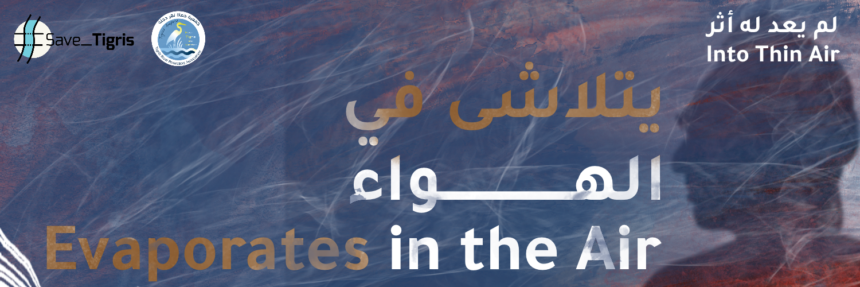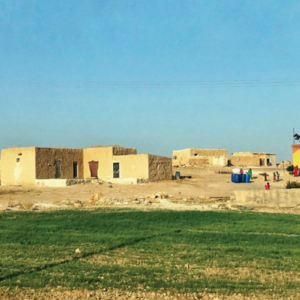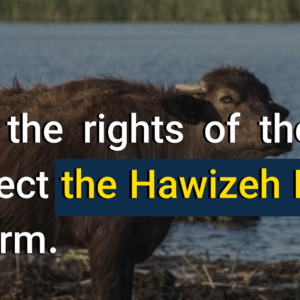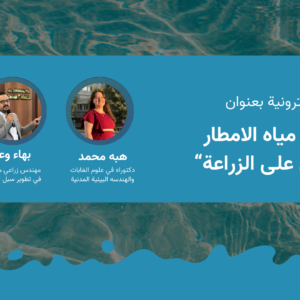Amsterdam, November 2022
In October 2021, Save the Tigris released an English-language report titled Into Thin Air: Evaporation Losses from Dam Reservoirs in Iraq to highlight the considerable adverse impacts of dam projects on the environment and local communities. Just over a year later, and in the wake of a controversial COP27 that both Save the Tigris and Humat Dijlah wanted no part of for reasons including Egypt’s abysmal Human Rights record, the blatant greenwashing, and the involvement of Coca Cola as a main sponsor, the report and its contents remain as relevant and important as ever. This year it will be released as part of a joint-campaign with Humat Dijlah and includes an Arabic language version.
Due to the exposure of large amounts of water to sunlight and air currents, the highest rates of evaporation are observed in large bodies of water, such as artificial reservoirs created by dams. Even beyond environmental damage, as mean temperatures continue to rise and the population grows, the increasing imbalance between water supply and demand that it brings will pose grave threats to the socio-ecological systems of the country, including lower productivity, loss of income, diminished food supply, migration and disputes over increasingly scarce resources. In short, the Iraqi population suffers.
Despite this, Iraq has doubled-down on the construction of dams. This includes the Kurdistan Regional Government and the Government of Iraq expressing interest in finishing construction for Bekhme Dam, with a projected capacity of 17 billion m3 and estimated annual losses of 480 million m3 of water through evaporation. Similarly, the controversial Makhoul Dam is also being continued despite its long list of negatives which have grave and permanent environmental, social, cultural and economic consequences.
As the report highlights, there is a real and persistent issue with monitoring, transparency, and access to accurate information, which is totally unacceptable in light of the challenges that the country is facing. If the KRI and GoI can make their assessments public for analysis, and if they can initiate constructive, democratic discussions with all key stakeholders, Iraq can move forward and deal with climate adaptation and the water scarcity issue in a more constructive, inclusive and purposeful way.
Recommendations of the report:
- In keeping with the National Action Plan (NAP) to mitigate the effects of climate change and the updated national strategy for managing water resources, the GoI and KRG should eliminate the construction of large dams from their plans and cease construction of the Makhoul Dam
- Establish a framework for systematic monitoring of climatic parameters, including air temperature, atmospheric pressure, humidity, precipitation, solar radiation, and evaporation across the country. Periodic data on water reserves and detailed information about methods of data collection should be made available to the public for independent and rigorous analysis. The results of independent analyses should also be considered in assessing the environmental and economic impacts of any dams still planned for construction
- While the KRG contains many small storage and water harvesting dams, it should also consider harvesting rainwater in networks of small ponds
- The KRG and GoI should act urgently to improve the efficiency of water distribution and consumption: Raise public awareness of the consequences of extracting more water from the aquifer than is replenished through infiltration; prioritize practices that replenish shallow wells; and provide training and incentives to help farmers reduce water consumption by using drip and sprinkler methods in place of flood irrigation
- GoI and KRG should commission studies to evaluate the feasibility of adapting the design of traditional Mesopotamian qanats – underground tunnel systems that bring infiltrated groundwater, surface water, or spring water to the earth’s surface using only gravitational force – for the development of water storage and transportation networks that minimise evaporation
The Save the Tigris Foundation believes that water is a resource that does not belong to any particular state, nation or sect. Since 2012, Save the Tigris has been advocating against the construction of Ilisu, Daryan and other large dams in Iraq and the region to preserve the cultural and environmental heritage of the Tigris River, and for the sustainable and equitable use of water for all.
Read the full report in:
————————————-
For further information on the report, contact the campaign via:
James Bogue
E-mail: [email protected]
Salman Khairalla
E-mail: [email protected]






Leave a Reply